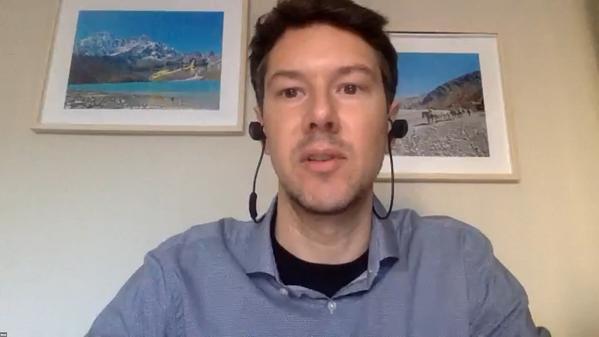Would you like to see your presentation here, made available to a global audience of researchers?
Add your own presentation or have us affordably record your next conference.
keywords:
industries
labor/labour
migration
Toilet paper, bananas, bandanas, kites, and catheters all come to us through global supply chains, the backbone of which is migrant labor. Items of everyday consumption in most countries emerge from the work of over 164 million migrant workers who participate in industries such as textile, apparel, food manufacturing, energy, technology, pharmaceuticals, agriculture, and natural resource extraction across the globe. Migration and mobility enable the growth of industries by forming their labor force. Simultaneously, now more so than ever, we face limitations and controls on global mobility. Militarized borders, anti-immigration policies, detention centers, and travel restrictions for targeted migrant groups have become the norm. Migrant workers are met with labor discipline, policing, and economic regulation. Such forms of population control have been enabled by a melding of state, corporate, and military interests. We see tensions rise between a global economic system that relies on and requires migration and mobility on the one hand, and cities, states, and nation-states that thrive on or require incarceration and containment on the other. Indeed, state-sponsored projects of digital automation, industrial upgrading, and technological advancement have been rooted in the mobilization of vulnerable laboring populations, as well as the criminalization of these very same groups. Working across the intersections of race, class, ethnicity, gender, and national affiliations, this roundtable brings together scholars who are based in the U.S. and abroad. Drawing from feminist critiques that challenge grand, teleological approaches to the study of transnational capitalism (Bear, Ho, Tsing, and Yanagisako 2015), our panelists remain committed to the study of diversity by examining the scaling of transnational mobility, cross-cultural encounters, and global supply chains. To this end, the roundtable will focus on the laboring experience and laboring subjectivities of migrant workers through the tensions between mobility and containment, and look at transnational and regional migration of workers. We will draw together the experiences of workers from China, South Korea, India, Bangladesh, Nigeria, United Arab Emirates, Qatar, Germany, and the United States. The panel will examine: How do flows, stoppages, restrictions, and regulations affect kinship, economic mobility, familial futures, creativity, wealth, and debt? What forms of power and violence are enacted through these politics of flow? In turn, what forms of labor resistance emerge from these dynamics of power? What are the roles of the state, corporations, and international governing bodies in these facilitating processes? How do workers mediate, critique, and challenge these tensions? What ethical responsibilities must we take on as consumers and researchers of these global supply chains? We hope to gain insights on aspects of labor migration such as shadow economies, labor resistance, resource extraction, infrastructures, profiteering, accumulation, surveillance, and leisure. Our discussions situate the laborer as the central figure within global supply chains to ask: What responsibility do we owe to those who undergird our consumptive practices? Bear, Laura, Karen Ho, Anna Lowenhaupt Tsing, and Sylvia Yanagisako. 2015. "Gens: A Feminist Manifesto for the Study of Capitalism." Theorizing the Contemporary, Fieldsights, March 30. https://culanth.org/fieldsights/gens-a-feminist-manifesto-for-the-study-of-capitalism

